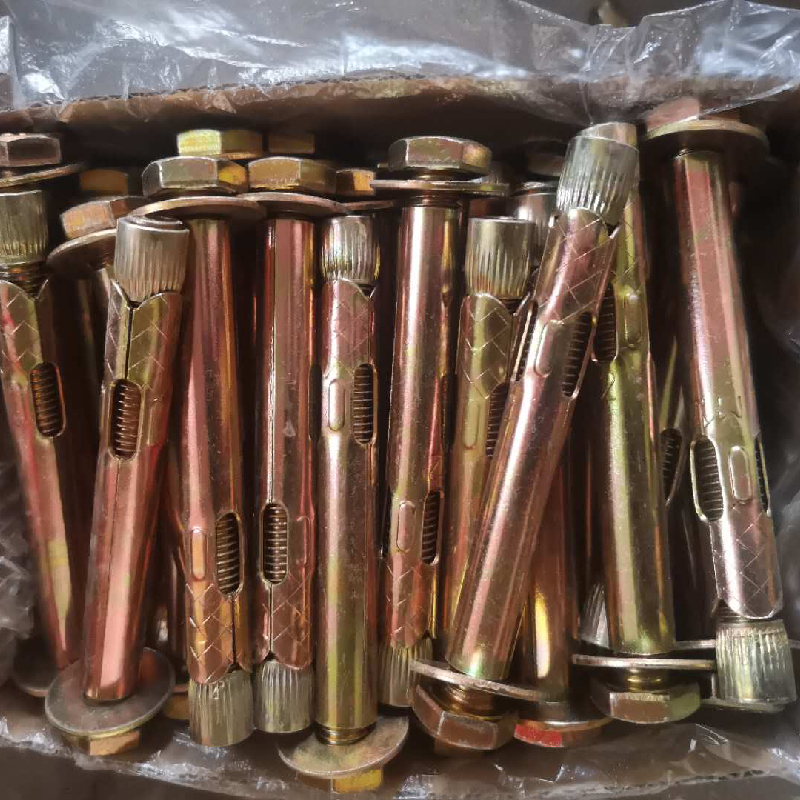Dec . 12, 2024 04:49 Back to list
specialty bolt head types
Understanding Specialty Bolt Head Types A Comprehensive Guide
When it comes to fastening components in various applications, the importance of using the right type of bolt cannot be overstated. The design and function of a bolt significantly impact the structural integrity and durability of a joint. One of the critical factors in selecting a bolt is its head type. In this article, we will explore different specialty bolt head types, offering insights into their unique characteristics and appropriate applications.
1. Hex Head Bolts
Hex head bolts are perhaps the most common type of bolt used across various industries. They feature a hexagonal head that allows for easy gripping with a wrench. The design provides excellent torque capabilities, making them suitable for high-strength applications. Hex head bolts are typically used in construction, manufacturing, and automotive applications.
2. Socket Head Bolts
Socket head bolts have a cylindrical head with a hexagonal recess designed for an Allen wrench or hex key. This design allows for higher torque to be applied in tighter spaces where a traditional wrench might not fit. Socket head bolts are often utilized in machinery assembly, automotive engineering, and applications requiring a sleek aesthetic.
3. Pan Head Screws
Pan head screws feature a rounded head that is slightly domed, which provides a larger bearing surface than flat head screws. They are easy to install and are primarily used for applications where a low-profile fastener is required. Typical uses include computer hardware and electronic enclosures, where appearance and space-saving are crucial.
Countersunk head bolts allow the head to sit flush with the surface of the material being fastened. This design is particularly useful in applications where a smooth finish is desired. They are commonly used in woodworking and cabinetry, where aesthetics are important, and the risk of snagging on protruding heads must be minimized.
specialty bolt head types

5. Flange Head Bolts
Flange head bolts combine the head and washer into one piece, providing an increased surface area that distributes load more evenly. This design minimizes the risk of the bolt loosening over time under vibration or pressure. Flange head bolts are frequently used in automotive and structural applications, where vibration and dynamic loads are significant concerns.
6. Round Head Bolts
Round head bolts feature a hemispherical head that can be beneficial in decorative applications or where surface contact with the head is necessary. These bolts are often used in furniture making and fixtures where aesthetics play a substantial role. While not as strong in terms of shear strength as some other types, they serve a specific purpose in decorative and lighter-duty applications.
7. T-Bolts
T-bolts are unique fasteners that have a T-shaped head, allowing them to slide into a slot and lock into position. This design is particularly useful in applications that require adjustment after installation, such as in conveyor systems and machinery frames. T-bolts offer versatility and ease of use in assembly and are often found in industries involving modular designs.
8. Wing Bolts
Wing bolts feature two wings on either side of the head, allowing for hand tightening without the use of tools. This is essential in applications where quick adjustments or removals are required. Wing bolts are commonly seen in prototype setups and temporary fixtures, as well as in equipment requiring frequent adjustments.
Conclusion
Understanding the various types of specialty bolt head designs is crucial for engineers, designers, and construction professionals. The selection of the appropriate bolt head type can enhance the functionality and effectiveness of a mechanical assembly. Whether it’s maximizing torque, ensuring aesthetic appeal, or allowing for easy adjustments, each bolt head type serves a specific purpose. By considering factors such as ease of use, load distribution, and environmental conditions, professionals can make informed decisions that lead to successful and durable applications in their respective fields. Careful analysis of these specialty bolt head types can improve not only the performance of individual connections but also the overall integrity of construction projects and mechanical systems.


